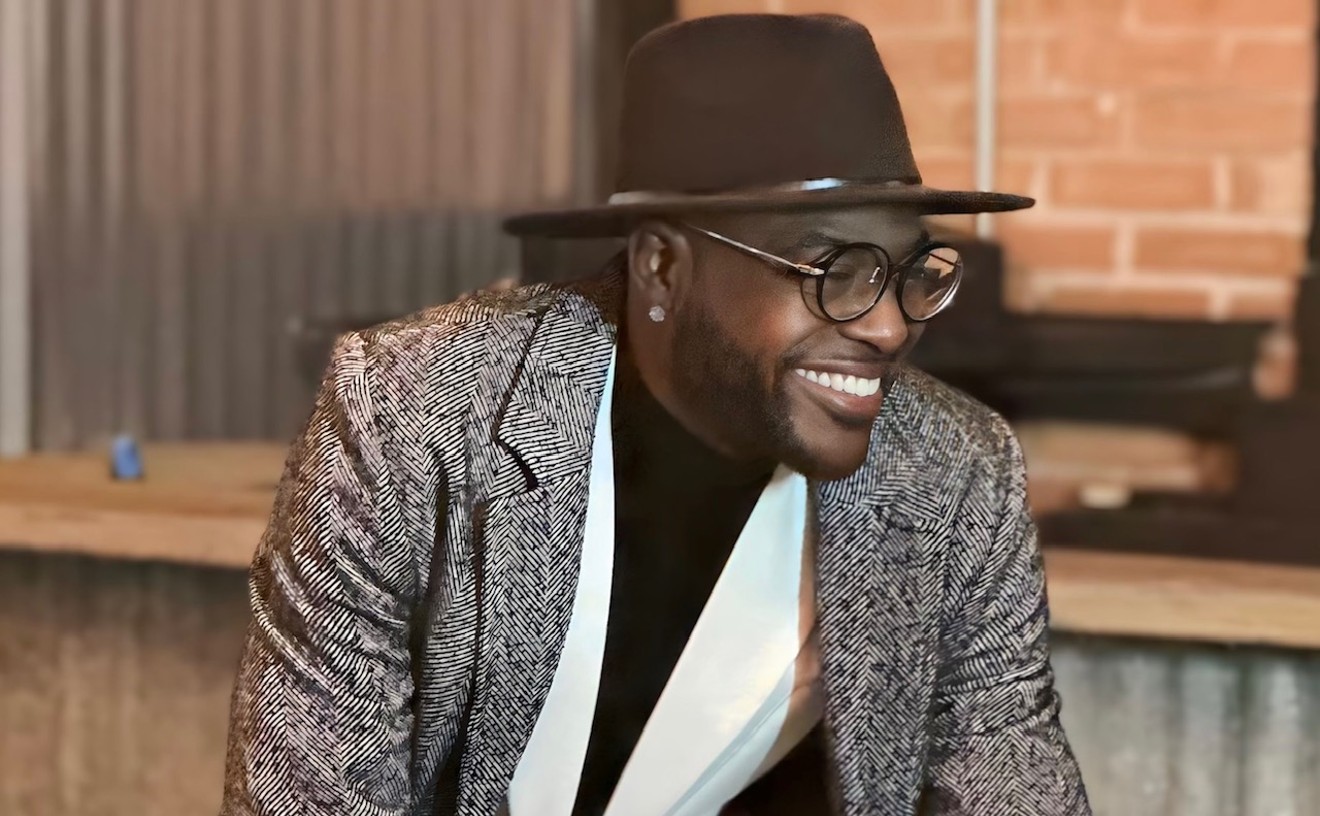During his allotted three score and 10, Burgess manufactured more than 30 novels, multiple volumes of literary criticism, and hundreds of essays, yet still found time to play the Penguin on the old "Bat Man" series.
These accomplishments are certainly nothing to quack at, but they might have been largely ignored by the unwashed had not Stanley Kubrick made Burgess' 1962 novel, A Clockwork Orange, into a blockbuster film.
Graybeards will remember the impact the movie had on the discourse of the day. Sages worried about its supposed glorification of violence, kids talked gleefully of "tolchocking" people on the "gulliver," and phallic masks, cod pieces, and bowler hats were common sights at many a Halloween costume party.
But does A Clockwork Orange have anything to say to us more than 30 years after the book was published and almost 25 years after the film's theatrical release in 1971?
It sho do. The central question posed by the movie and by Burgess' stage adaptation of his novel is more relevant than ever. As a character in the play apostrophizes, "Is a man who chooses the bad better than one who has goodness imposed upon him?"
The man in question is Alex, head of a gang of "droogs," or thugs, who enjoy drinking drug-laced milk and engaging in "a bit of the old ultra-violence." The disturbing thing about Alex is that he ought to know better. He's bright, sensitive to artistic greatness (he worships "Ludwig Van"), charismatic, and he enjoys a stable if banal home life with his parents. He deliberately selects violence as his form of self-expression because it turns him on. He's not even in it for the money.
After a series of robberies, rapes, and murders, Alex is made the subject of a state experiment. In a kind of Schick system of programmed revulsion, he is injected with drugs and exposed to relentless images of violence until even the thought of mayhem makes him physically ill. Though he'd like to continue his nasty ways, when push comes to shove, he simply can't.
The state is happy because it has one less criminal to house and feed. The church, though disturbed by Alex's puppet-like propriety, backs the state, and the common people are "willing to trade liberty for a quiet life."
The only person who genuinely objects is an ACLU-like liberal intellectual, who foresees that what the state does to criminals it eventually will do to everyone else. The intellectual, however, is a mere pawn for the Communists, and he loses his benignity when he realizes that it was Alex and his pals who raped his wife.
In comparison to this motley crew, a good old-fashioned rotter like Alex seems refreshingly honest and almost sympathetic. He's human, at any rate, and not a "clockwork orange."
Now, how does all this play out at the Arcadia, a former movie theater on lower Greenville that's been converted to a cabaret? First of all, it's not the movie and it doesn't try to be. What Field Trip Productions is striving for is a kind of "in-your-face" multimedia assault that will appeal to both adventurous theatergoers and to Dallas' younger set who otherwise would be thrashing or pogoing or whatever it is kids do on a Friday or Saturday night these days.
The play is staged on the Arcadia's checkerboard dance floor, which is backed by a large projection screen that flickers with gloomy, foreboding Orwellian images and Big Brother-like slogans throughout the action. An overlay of droning, industrial sound, scored by a Dallas group called Mean Gus, contributes to the atmosphere of decay and despair. Actors roam into the audience, use the Arcadia's bar to order their lactose cocktails, and generally run amuck. No doubt this kind of thing would seem passe in NYC, since the actors don't actually drag audience members onto the stage to rape and kill, but in Dallas it seems pretty cool.
Funny thing is, though, after about 10 minutes you tune out the video, get used to the actors bouncing off the walls like pinballs, and focus on the play itself and how well the actors are carrying if off. Like most small, independent theatrical productions, this one suffers from inconsistency. Two or three of the actors are quite good, several are adequate, and the others are only there to run the scout team.
Fortunately, Graham Brown, who plays Alex, literally throws himself into the part, oozing malevolence, false contrition, or aesthetic rapture as the occasion demands. As the play's protagonist-antagonist and narrator, he must hold the stage continuously, which he does without flagging.
Other parts are played by ensemble, usually with a heavy-handedness that broadcasts whatever points Burgess is trying to make in capital letters, bold and underlined. Perhaps director Steve Mahone was worried that theatrical tenderfeet in the audience wouldn't understand that the play is meant to be taken as satire.
Driven to distraction by the fact that he can no longer maintain the droog lifestyle, Alex attempts suicide. This trauma releases him from the grip of his "aversion therapy" so that he is able to carry on as before.
Now, however, he finds that time has cooled the fever in his blood, and rather than kill, he'd like to procreate. In an ending different from that of the film, Burgess suggests that the best cure for people like Alex is to grow up a little (a none-too-satisfying conclusion for the victims of his growing pains, but better than complete cynicism, perhaps).
The decades are definitely making a prophet of Burgess. If anything, his droogs seem almost tame by today's standards of depravity. Not quite the Sharks and the Jets from "West Side Story," but getting there. This production, if not polished in execution, does offer energy, conviction, and an interesting opportunity to revisit a work that, like a droog's razor blade, cuts close to the bone.
A Clockwork Orange runs through June 3 at the Arcadia Theater.










